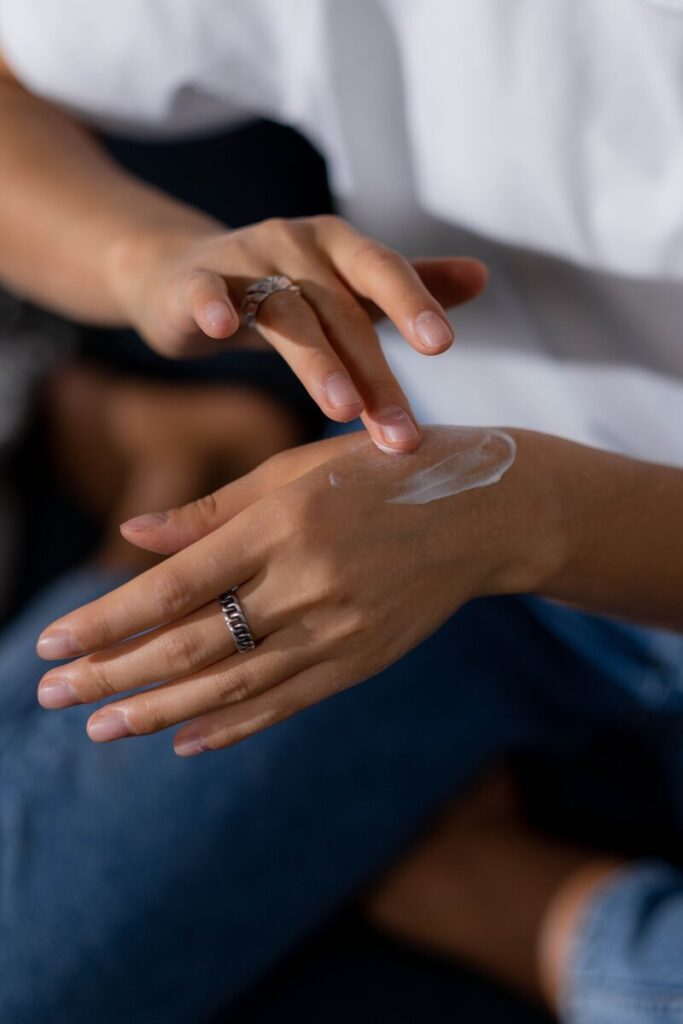A top concern for both men and women is hair loss, whether it’s thinning or straight up falling out! But the first thing to do when you notice hair loss is to REMAIN CALM! There are many causes of hair loss and fortunately some great treatments out there. Once you’ve checked your pulse, done some deep breathing, be sure to get an appointment with a board-certified dermatologist who is an expert in all things skin, hair and nails!
Our hair not only serves to protect our scalp and skin, but also helps us regulate our body temperature. And of course it’s a way to express our individuality, beauty and creativity. Losing hair can be terrifying and stressful, and it can affect more than our physical health, but our mental health as well. But all is not lost. With the right work up, treatment and management, hair loss is something that can be managed with confidence.
 Photo credit: Alexander Krivitskiy [unsplash]
Photo credit: Alexander Krivitskiy [unsplash]
There are several reasons why people experience hair loss. These include but are not limited to:
- stress
- a hormonal imbalance
- genetics
- a sign of an underlying health condition, such as thyroid imbalance, anemia or vitamin deficiencies
- heredity
- inflammatory skin condition
Let’s start with the facts:
It is normal to lose about 100-150 hair follicles a day, more if you shampoo less frequently. However, too much hair loss can cause great worry for people. If you are noticing large clumps of hair falling out, you may be experiencing something called telogen effluvium which can happen after stressful events, surgery, pregnancy, and illnesses. Fortunately this type of hair loss is completely reversible.
Other causes of hair loss include internal deficiencies of iron, vitamin D, or thyroid hormones, to name a few. Your dermatologist may check these with your initial work up to make sure your levels are appropriate.
Another cause of hair loss and thinning is androgenetic alopecia. This tends to be ‘hormonal’ hair loss and happens in both men and women. While we can’t undo our genetics, there are medications out there that can help minimize and delay hair loss.
While the above types of hair loss (also known as alopecia) have all been non-scarring, there are some inflammatory conditions that cause scarring alopecias. With these, it’s imperative to see a dermatologist ASAP to help prevent and minimize scarring.
The treatment of your hair loss will vary depending on the type that you have. While you may be tempted to try over the counter supplements, please know that these have not been rigorously studied and verified so your best bet is speaking to your dermatologist first.
In the past, biotin supplementation was recommended but studies have now shown that taking this in high doses can interfere with blood work, and most concerning with a lab test done to determine if someone is having a heart attack. As it is not effective for hair loss, your best bet is to avoid biotin for hair loss.

Photo Credit: Kyle Smith [unsplash]
Once your dermatologist has determined the cause of your hair loss there are a few treatments to try:
- Over the counter Rogaine 5% foam to scalp
- Medications such as minoxidil, dutasteride, or finasteride can helpful with hormonal alopecia
- Steroid injections can be helpful with inflammatory alopecia
- Platelet rich plasma (PRP) injections into scalp
- Hair transplantation
Treating hair loss is a complex process and the results are not immediate, so please don’t give up if you aren’t seeing any immediate signs of improvement. In fact, stable hair loss 3 months after starting a treatment is actually a sign that it’s working! New hair may grow in 6-8 months after starting a treatment. Be patient and stay the course!
For more great information on hair loss, check out my podcast with Dr. Marissa Milchak for more hair loss tips!
www.theskinreal.com/podcast
@dermdoctor_milchak
A new podcast episode comes out weekly on Tuesdays.










